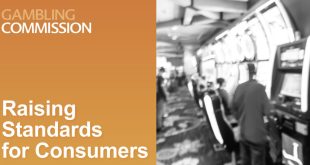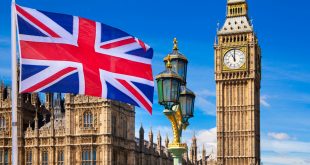
Though blighted by chaotic changes to the government, which will likely see no publishing of the Gambling Review White Paper in 2022. Licensing Expert David Clifton observes strategic manoeuvres that indicate which criteria stakeholders want the Review’s remaining proceedings to focus on. Consensus points out that an abandonment of the White Paper would not represent good news for either the industry or its consumers.
White Paper, what White Paper?
When writing last month’s ‘Licensing Expert’ article for SBC News, I forecast that the new UK Government (then into the first few days of Liz Truss’s premiership) would not publish the long-awaited Gambling Act Review, White Paper, before 2023.
Hours after I submitted that article for publication, the Guardian’s Chief Political Expert went a stage further than me, suggesting that the White Paper might face the guillotine altogether. She described it as “the kind of regulatory reform that Truss is keen to avoid burdening business with” and quoted a Cabinet source as saying: “Anything that puts additional burdens on business or seems like unnecessary interference in people’s lives during a time of crisis is in our sights”.
Immediate reactions to this suggestion were extremely mixed. However, as became evident in discussion with my panellists at the ‘UK Rewired’ session during the SBC Summit Barcelona on 21 September, a consensus exists that abandonment altogether of the White Paper would not represent good news for either the industry or its consumers.
Close to three years since all four major political parties called for gambling law reform in their respective General Election manifestos and after nearly two years of wide-ranging uncertainty for all sectors within the industry since the Gambling Act Review (and its accompanying Call for Evidence) commenced, a huge amount of evidence will have been gathered by the DCMS. The effort, time and cost involved in that process should not be allowed to go to waste.
The objectives of the Review were hardly controversial, namely to:
- examine whether changes are needed to the system of gambling regulation in Great Britain to reflect changes to the gambling landscape since 2005, particularly due to technological advances;
- ensure there is an appropriate balance between consumer freedoms and choice on the one hand, and prevention of harm to vulnerable groups and wider communities on the other; and
- make sure customers are suitably protected whenever and wherever they are gambling, and that there is an equitable approach to the regulation of the online and the land based industries.
However, it’s not only those objectives that need to be fairly and urgently accomplished. All of my panellists in Barcelona agreed (for the reasons I explained in my July 2022 Licensing Expert article) that UK licence holders need very considerably greater clarity on current Gambling Commission expectations, including (crucially) in relation to affordability checks.
Unfortunately, the UKGC presently seems unable to provide any clarity in that respect having, by its CEO’s own admission earlier this year, handed over to DCMS all affordability related evidence it obtained from the 13,000 replies to its November 2020 Consultation and Call for Evidence. Why did it do that? According to the UKGC’s CEO, it was so that this evidence can instead be “considered as part of the White Paper’s recommendations”. In light of the consequential grilling on this topic that Andrew Rhodes received from the House of Commons DCMS Committee at the end of June, it was disappointing to see so little additional information contained in his follow-up letter to the Committee on 14 July.
Rumours and counter-rumours regarding the future (if any) of the Gambling Review White Paper continued to circulate right up until Truss’s resignation as Prime Minister on 20 October and they will no doubt continue to do so whilst we await policy developments following Rishi Sunak’s appointment as her successor.
Even when normal parliamentary service is resumed, gambling reform is unlikely to be at the top of the new Cabinet’s list of priorities and my forecast will therefore continue to be ‘no White Paper before 2023’.
Comments from down under…
Whilst the UK gambling industry has been celebrating another successful ‘Safer Gambling Week’, the UKGC’s CEO, Andrew Rhodes, was attending the annual conference of the International Association of Gaming Regulators (‘IAGR’) in Melbourne, Australia. Whilst there, on 18 October, he delivered a speech entitled: ‘Time for change? Reflections on the policy landscape and developments in Great Britain’.
Key trading-related themes arising from his speech covered the following:
- overall participation in gambling in the UK has remained statistically stable, as a result of which there has been no ‘explosion’ in participation rates, as some have sought to contend, but more women are gambling than has been the case previously (which potentially ties in with the launch by GambleAware of a new campaign after new research has shown the cost of living crisis could lead to a growth in gambling harms among women);
- similarly, whilst (a) very high levels of spending on gambling advertising and sponsorship in the UK are sometimes claimed to be evidence of growth in gambling participation, (b) rates of online gambling have continued to grow and (c) in-person gambling participation rates have showed some signs of recovery since the COVID-19 pandemic, the whole market has not been growing;
- the UKGC expects to “see a continuation of new and novel products entering the market as well as attempts to extend the participation of certain demographic groups”;
- increases in the cost of living appear to be leading operators to make changes to their staffing and operations, even before much evidence is seen of it affecting consumer gambling spend;
- some of the largest operators are indicating that (a) revenues are down due to the introduction of safer gambling measures in terms of stake limits and enactment of affordability measures, (b) there has been a reduction in the proportions of revenue coming from high spending customers, “with a pivot towards lower spending customers”, with (i) one such group reporting it has seen “income from higher spending customers fall from 19% of income three years ago, to 5% now” and (ii) another having “introduced automated affordability checks where they are rejecting 7% of customers at the point of application due to financial risk”;
- major multinational operators have “made conscious choices to actively reduce reliance on high-risk and higher-spending customers”; and
- the top 3 operators in Great Britain have increased their market share from around a third to a half in just the last five years (with the consequence that “the top 10 operators now represent 77% of total B2C GGY in Great Britain and the top three will represent over 50% when recent mergers are accounted for”).
A quick sidestep to the new gambling advertising rules
Rhodes did not go into much more detail than is mentioned at 2(a) above regarding gambling advertising and sponsorship, but it would be remiss of me to omit from this summary of the last month’s UK gambling regulatory developments mention of the new CAP gambling and lotteries advertising rules for protecting under 18 year olds that came into force on 1 October 2022. They require that gambling and lottery ads must not “be likely to be of ‘strong appeal’ to children or young persons, especially by reflecting or being associated with youth culture.” As the Advertising Standards Authority said when announcing the new rules in April this year: “This is a step-change from the existing rules that gambling ads must not be of ‘particular appeal’ to children. A ‘strong appeal’ test prohibits content (imagery, themes and characters) that has a strong level of appeal to under-182 regardless of how it is viewed by adults”. As also warned by the ASA, the new rules will have significantly impacted those looking to promote their gambling brands using prominent sportspersons and celebrities as well as individuals like social media influences who are of strong appeal to those under 18. Considerable extra care is required – more information is available here!
Back to comments from down under
The illegal online gambling black market
Reverting to Rhodes’ IAGR speech, consistent with the UKGC’s longstanding difference of opinion with the Betting and Gaming Council on the subject of the illegal online gambling black market, he maintained that whilst the UKGC is “deploying more resources to combat” this issue “day in, day out”, it is “not the overwhelming risk it is sometimes painted to be, nor can it be the excuse for not addressing some of the extremes we see in the regulated industry”.
Customer interaction and affordability
Remarks within his speech regarding customer interaction and affordability side-stepped criticisms that greater clarity of UKGC expectations is required. This is disappointing because there is genuine confusion on the part of UK licensed operators in this respect, particularly in light of very mixed and sometimes contradictory messages that have been emanating from the regulator on the subject of affordability over the last year or so.
For example, in March this year a senior representative at the UKGC described as a ‘current LCCP requirement’ the regulator’s Enforcement Report 2020 statement that “Customers wishing to spend more than the national average should be asked to provide information to support a higher affordability trigger such as three months’ payslips, P60s, tax returns or bank statements”.
At the same time, a presumably different UKGC representative correctly advised that “the Enforcement Report is not formal guidance”. More recently, a yet further view has been expressed from within the UKGC that “there is no requirement to collect bank statements or payslips from customers when assessing financial risk”, notwithstanding comments to the contrary made by some UKGC officers when conducting compliance assessments. In such circumstances, it is unsurprising that operators are confused.
It is not just me who has concern in relation to such inconsistency from UKGC staff. For example, one of its former long-term employees has recently said to me in an open forum: “If you think that operators’ interpretation of ‘the guidance’ may well vary, I can assure you from bitter experience that interpretation will vary just as wildly throughout the various sections of the Commission”.
None of this confusion is helped by the fact that, whilst the non-remote sector remains bound by the LCCP to take account of the regulator’s customer interaction guidance (including its affordability provisions) that came into force in October 2019, no such guidance has applied to the remote sector since 11 September this year. That is because the last-minute change of plan by the UKGC in relation to key aspects of its new Remote Customer Interaction requirements means that there is no current LCCP obligation on the remote sector to take account of any formal UKGC customer interaction guidance whatsoever.
Moreover, the remote sector still awaits the commencement of a six-week UKGC consultation on its intended customer interaction guidance notwithstanding the previous assurance by its regulator that this was “likely to be launched in late September”. In this respect Andrew Rhodes was seemingly mistaken when he told his IAGR audience in Australia: “We are consulting on new guidance that explains how to be compliant”. It surely cannot be beyond the UKGC to put this right now? Unless a complete re-write is proposed, what more do they have to do than provide justification for the first draft of the new guidance document that they published on 20 June, which should of course have gone out for consultation at that time? I await with interest to find out what reason is given for the ongoing delay.
Whilst on the subject of consultations, it is worth noting that the UKGC has been informing us for more than a year now that a consultation is imminent on more prescriptive requirements related to “unaffordable losses over a short period (‘binge gambling’), significant unaffordable losses over a long period and customers who are particularly financially vulnerable”. With operators very keen to understand more about the regulator’s expectations in this respect, it is important that we have an urgent update on the timing of this long-awaited consultation too.
UKGC enforcement action
Introducing reference within his IAGR speech to 16 UK licensed operators having paid out within the last 10 months a total of £45 million following regulatory failures, Rhodes said that: “Sadly some operators continue to pedal the story this is all too hard”, adding that “the Gambling Commission has a duty to make gambling fairer, safer and free from crime. Our duties don’t end even if something is hard”. The single tiny gleam of light discernible from his comments in this respect was almost hidden away within his words: “At this volume, we think the message is starting to get through”. From my experience of advising clients in all sectors of the UK gambling industry, I can confirm that ‘the message’ has most certainly got through, as I hope will have been evident from the ‘UK Rewired’ panel session to which I have referred above and which you can view online here.
Nevertheless, other enforcement action is still going through the UKGC pipeline process. In last month’s ‘Licensing Expert’ article, I mentioned a list of then recently imposed penalties totalling over £20 million, almost half of the above-mentioned total of £45 million. Since that time, the last month has seen the UKGC impose the following additional penalties totalling nearly £4 million:
- Betway: £400,000 (for advertising breaches, i.e. marketing on children’s webpages) and
- Petfre (Gibraltar), trading as Betfred and Oddsking: £2.9million (for AML and social responsibility failings)
- NSUS Limited, trading as GGPoker: £672,829 (for AML and social responsibility failings).
Data, data, data
Rhodes’ IAGR speech covered other ground too, including the Single Customer View initiative (a trial of which is due to begin “in the coming months”) and better use by the UKGC of data that it collects and assesses, including data on adult gambling participation and prevalence of those who experience difficulties or harms through their gambling.
You can read more in this latter respect (a) on the UKGC’s webpage entitled ‘Developing survey questions capturing gambling-related harms’ and (b) in the May 2022 Clifton Davies website posting entitled ‘Higher PG prevalence rates forecast by UKGC’s new data collection pilot survey’, which gives a strong clue to what will no doubt turn into a highly controversial debate in due course on what the UKGC believes constitutes “better data on the experience of gambling-related harms”. Those with a particular interest in gambling prevalence might also wish to read the recently published views of the UKGC’s Lived Experience Advisory Panel, which include a similarly controversial contention that “the degree of undercounting [of gambling-related harm] could be substantial”.
Still on the subject of UKGC data, I recommend a recent blog written by industry veteran Simo Dragicevic, now a member of the UKGC’s Digital Advisory Panel, in which he (a) picks up on comments made by UKGC Chair, Marcus Boyle, in a 23 May 2022 op-ed piece for ‘The Times’ relating to use of data and technology (entitled ‘Gambling needs better regulation and this is how we will do it’) and (b) reflects on the challenges and opportunities for increased use of data to develop better gambling regulation.
Collaboration – the UKGC’s call of old
Rhodes concluded his IAGR speech with a call for collaboration across markets, across jurisdictions and across cultures with a view to making gambling fairer and safer for consumers worldwide. This was consistent with a similar call for collaboration between the UK industry and its regulator for ‘raising standards’ purposes, in my experience most recently mentioned by the Commission’s Director of Compliance, Mandy Gill, at the KnowNow ‘Compliance Forum’ held in London on 29 June this year. This has to be the sensible way to proceed and I look forward to playing my own small part in this within the near future.
Looking forward – a personal note
As many readers will know, after close to 40 years advising all sectors of the gambling industry on licensing and regulatory compliance issues (25 years of which have been in close conjunction with my business partner Suzanne Davies), I have made the decision to take a fresh career path. This will therefore be the final ‘Licensing Expert’ article that I write for SBC News in my capacity as a Director of Clifton Davies Consultancy Limited. However, I will continue to write these articles in my personal capacity.
I have no intention of hanging up my boots just yet! Quite the contrary in fact, because I have accepted an invitation to become a Non-Executive Director of Metropolitan Gaming and will be maintaining as keen an interest in all aspects of this industry as I have always done.
This will include speaking at conferences on gambling regulatory compliance issues as long as people believe I still have something of interest to bring to the attention of audiences. As matters stand, one of the next such conferences will be the CasinoBeats Summit in Malta (on 21-23 March next year), so I look forward to seeing many of you there.
___________________









